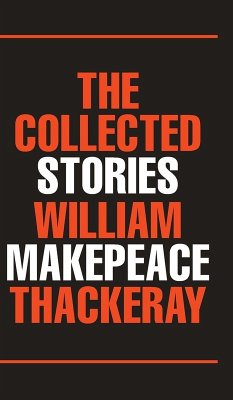Collected Poems by William Makepeace Thackeray offers a delightful and revealing exploration of the poetic voice behind one of Victorian literature's greatest novelists. Best known for his satirical masterpiece Vanity Fair, Thackeray brings the same wit, irony, and insight to his verse-ranging from humorous ballads and light-hearted rhymes to reflective meditations on love, society, and the passage of time. These poems showcase his mastery of language, his gift for character, and his keen eye for the follies and charms of human nature. This collection adds a rich and lyrical dimension to Thackeray's literary legacy, highlighting the versatility and warmth of a writer whose sharp intellect was always tempered by deep humanity.
Bitte wählen Sie Ihr Anliegen aus.
Rechnungen
Retourenschein anfordern
Bestellstatus
Storno








